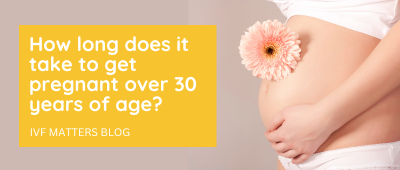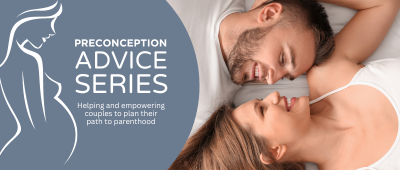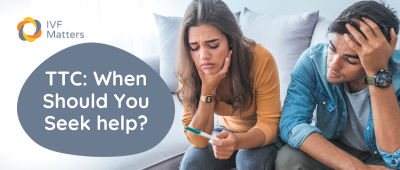The time to getting pregnant can vary from person to person, and age is an important factor that affects fertility. While it is possible to conceive after the age of 30, the chances of getting pregnant naturally decrease as a woman gets older.
Fertility Assessment:
To understand a womans’ fertility, it is greatly beneficial to assess her reproductive health. Several factors can influence female fertility including; age, overall health, menstrual cycle regularity, hormone levels, and any underlying medical conditions.
Here are a few key assessments which can be undertaken to help you review and understand your current fertility status:
Ovarian Reserve Tests: Ovarian reserve refers to the quantity and quality of a woman's eggs which naturally decline as a woman ages. Ovarian reserve can be assessed through blood tests that measure hormone levels like follicle-stimulating hormone (FSH), luteinizing hormone (LH), and anti-Müllerian hormone (AMH). These tests can provide an insight into the quantity and quality of eggs remaining in the ovaries and help your fertility specialist conclude whether you will likely have problems when trying to conceive naturally.
IVF Matters offers an at-home female fertility AMH Test Kit, including a complimentary clinical review of the results to help you understand your current fertility status/ovarian reserve.
Menstrual Cycle Evaluation: The regularity of menstrual cycles is important for fertility. Tracking ovulation through methods like basal body temperature charting or ovulation predictor kits can help determine the timing of ovulation when trying to conceive. Irregular or missing menstrual cycles could indicate hormonal imbalances or conditions such as Polycystic Ovarian Syndrome (PCOS).
IVF Matters offers a Hormonal Profile Test which provides valuable information to assess infertility, ovarian function, abnormal menstruation and more. Alternatively, if you suspect you might have PCOS, we offer a Polycystic Ovarian Syndrome Tests | PCOS Profile + Clinical Review, which will help diagnose if you’re suffering from polycystic ovarian syndrome and includes a full hormone panel, glucose, insulin, and lipid test, enabling you to get expert help.
Structural Evaluation: Evaluating the structure of the reproductive organs can be done through imaging techniques like ultrasound or hysterosalpingography (HSG). These tests can help identify any abnormalities, fibroids or blockages in the uterus or fallopian tubes that may hinder natural conception.
IVF Matters can perform these investigations at one of our London clinics and our supportive specialist will discuss with you the options available depending on your diagnosis.
Infertility Risks for Women Over 30:
Here are some common risks associated with infertility which increase in women over 30:
Diminished Ovarian Reserve: As a woman ages, the number and quality of her eggs decrease. This reduces the chances of successful fertilisation and implantation.
Irregular Ovulation: Hormonal imbalances become more common as women get older, leading to irregular or infrequent ovulation. This can make it difficult to predict fertile periods and conceive naturally.
Increased Risk of Chromosomal Abnormalities: The risk of chromosomal abnormalities in eggs, such as Down syndrome, increases with age. This can result in a higher rate of miscarriages or unsuccessful pregnancies. If you are aware of any hereditary risks, it’s best to speak with your fertility specialist to discuss the way forward.
Higher Incidence of Medical Conditions: Age-related medical conditions like endometriosis, fibroids, or polyps become more prevalent, and these conditions can affect fertility.
Declining Egg Quality: The quality of eggs declines with age, which can lead to difficulties in fertilisation, implantation, and embryo development, which can also unfortunately lead to miscarriage or secondary infertility.
Time to Get Pregnant:
The time it takes to get pregnant can vary widely, even for women in their twenties depending on several factors. Factors such as overall health, the fertility status of both partners, frequency of intercourse, and any underlying health conditions can influence the duration of conception.Whilst it's challenging to provide an exact timeline, here are some general insights:
- Women in their early 30s (30-34) generally have a good chance of getting pregnant within a year of trying, provided they and their partner have no underlying fertility issues.
- As women move into their mid-to-late 30s, the chances of conception decrease. It may take longer to get pregnant, and seeking medical advice after six months of unsuccessful attempts is recommended.
- For women over 35, fertility continues to decline. The chances of conceiving naturally decrease further, and it's advisable to consult a fertility specialist if pregnancy hasn't occurred after six months of trying.
- Assisted reproductive technologies, such as in vitro fertilization (IVF), may be recommended for women over 35 who are experiencing difficulties conceiving.
It's important to remember that these are general guidelines, and individual circumstances can vary. Infertility issues for the male partner should also be considered as these can contribute to success with natural conception. Consulting a healthcare provider or a fertility specialist early on can help to provide personalised advice based on specific factors and help navigate any fertility challenges.
IVF Matters offer a Prep4Pregnancy service which supports you with fertility coaching over a 3-month period to help ensure you are doing everything necessary in order to conceive naturally.
Conclusion
In conclusion, the time it takes to get pregnant for women over 30 can be influenced by various factors such as overall health, fertility status, and age-related decline in fertility.
Whilst we recognise that fertility for both sexes declines with age, it is still possible to conceive naturally, although success rates will decrease as a woman gets older for the reasons outlined in this blog. If pregnancy hasn't occurred after a reasonable amount of time, or you are concerned about the delay, seeking medical advice and considering fertility assessments can be beneficial in understanding your individual fertility status and exploring the available options to start a family.
IVF Matters offers FREE advisory calls if you wish to discuss your next steps or consider obtaining a fertility assessment. You can also register for our Prep4Pregnancy programme which includes a review of your current fertility status and provides you with key insights and advice to improve your chances of falling pregnant naturally.






